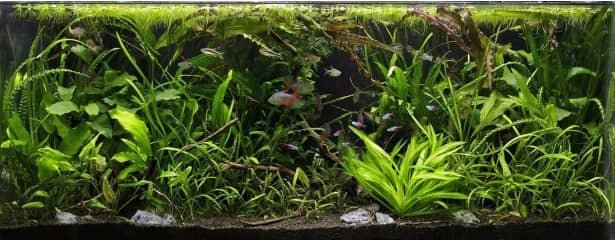Under great interest the project Geofood has been started. The aim of Geofood is to investigate whether geothermal heating can not only be used to heat greenhouses, but also to breed fish. As a symbol for opening the new aquaponic facilities, a floater with lettuce plants was placed on an aquarium with tilapia during the opening operation. Geofood is a collaboration between the Business Unit Greenhouse Horticulture of Wageningen University & Research and partners from Iceland, Slovenia and the Netherlands.
A constant water temperature is required for fish farming all year round. Supply and demand are less constant in greenhouse horticulture: relatively much is heated in the winter and hardly ever in the summer. In addition, there are more and more cultivation companies with a geothermal source. This creates a surplus in the summer. Selling geothermal heat could be another revenue model for geothermal resources.
To this end, WUR developed an energy model for the combination of geothermal-greenhouse horticulture-aquaculture. To validate this model, an advanced fish farming system was installed at WUR in Bleiswijk in early 2019. It is a so-called recirculating aquaculture system (RAS). The largest tanks in this system contain around 10,000 liters of water containing thousands of fish. Data is collected from, among other things, the water quality, temperature, water consumption and CO2 produced by the fish.
WUR carries out this research in collaboration with partners from Iceland, Slovenia and the Netherlands. Algae production and food processing processes are also being investigated as potential applications for circular food systems that run on geothermal energy. Funding for the research comes from the European GEOTHERMICA – ERA NET Cofund Geothermal. Dutch participation in the project is supported by RVO and Top Sector Horticulture & Propagation Materials.
Contact:
ir. AT (Alexander) Boedijn MSc
https://www.linkedin.com/in/alexanderboedijn/
Source: WUR
Editor at the digital magazine AquaHoy. He holds a degree in Aquaculture Biology from the National University of Santa (UNS) and a Master’s degree in Science and Innovation Management from the Polytechnic University of Valencia, with postgraduate diplomas in Business Innovation and Innovation Management. He possesses extensive experience in the aquaculture and fisheries sector, having led the Fisheries Innovation Unit of the National Program for Innovation in Fisheries and Aquaculture (PNIPA). He has served as a senior consultant in technology watch, an innovation project formulator and advisor, and a lecturer at UNS. He is a member of the Peruvian College of Biologists and was recognized by the World Aquaculture Society (WAS) in 2016 for his contribution to aquaculture.







